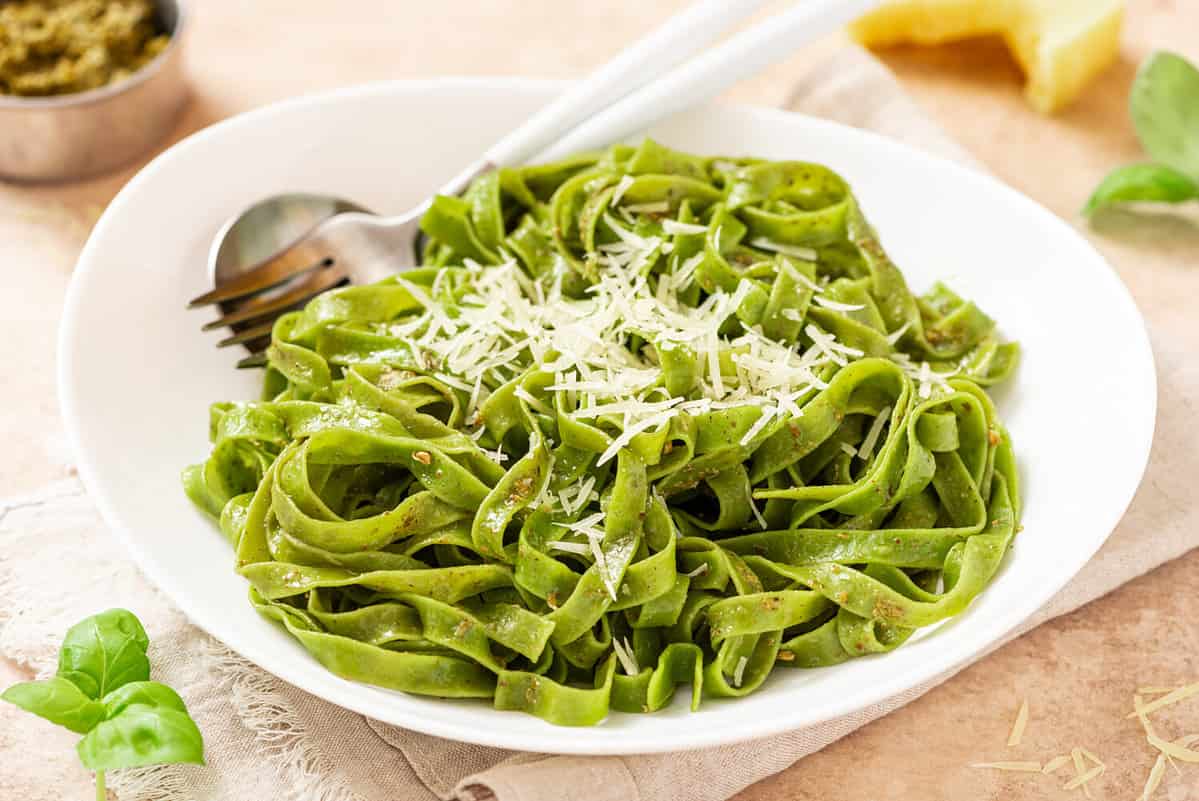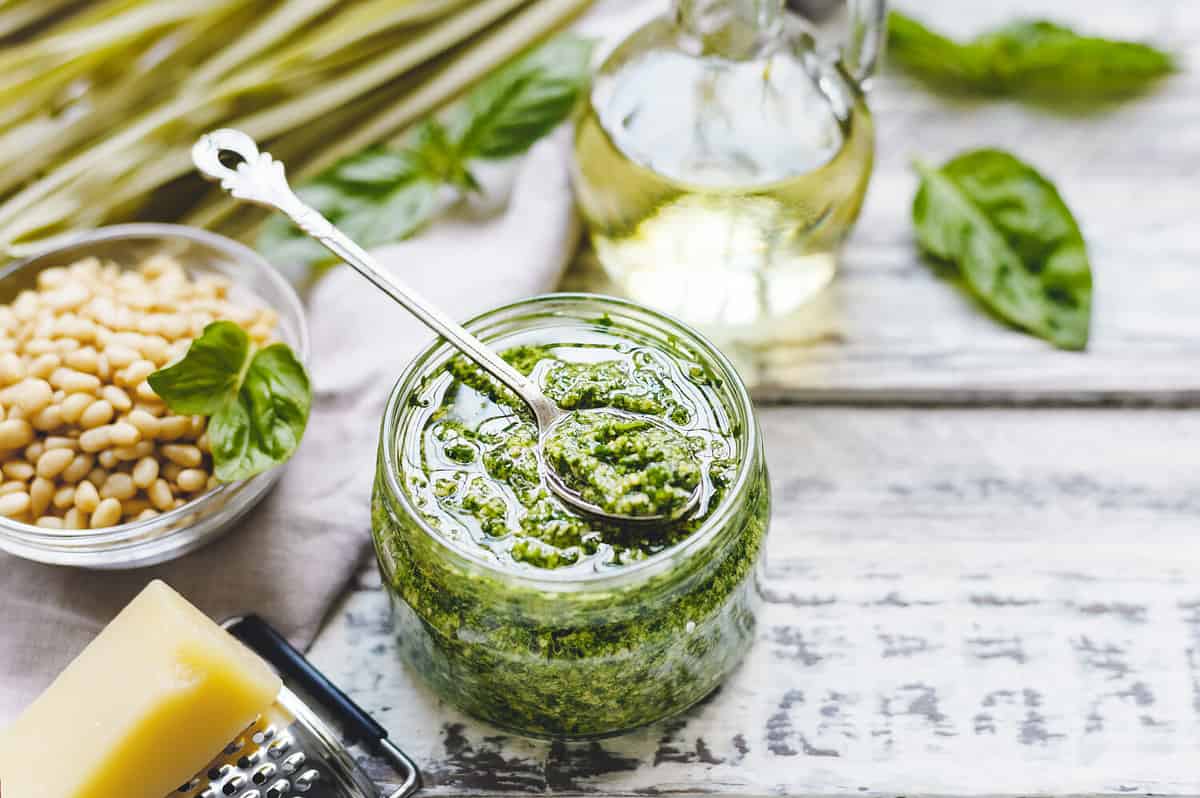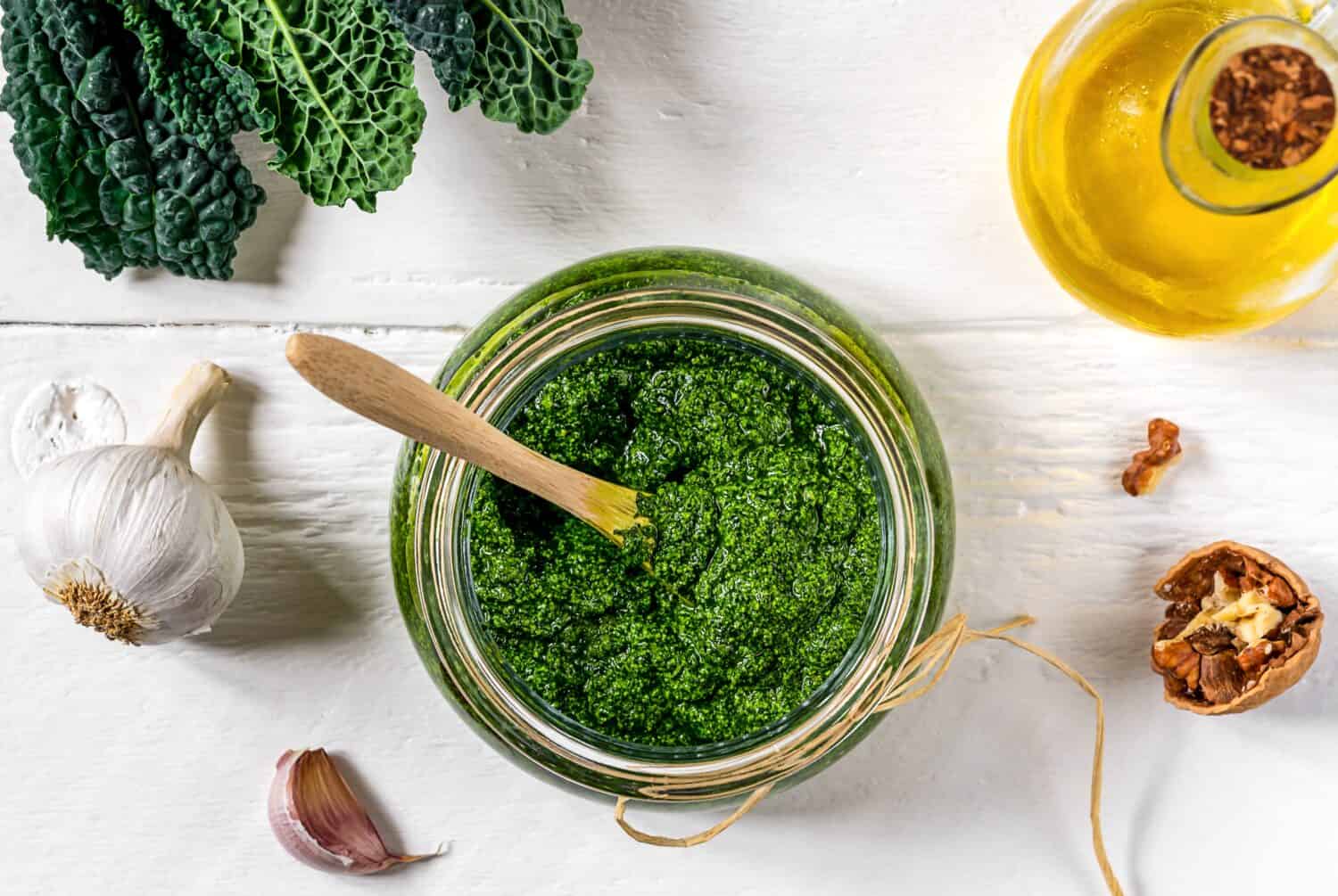Is pesto, a popular and loved Italian ingredient, actually healthy for you? Made with only a few simple ingredients, pesto is healthy and can offer some health benefits for you and your family. Here is everything you should know about pesto, including its nutritional facts, health benefits, and risks.
What Is Pesto
Although most people think of the basil green sauce when they hear pesto, that's not necessarily correct. “Pesto” is actually a generic term, and in Italian, the word means to pound or crush. In turn, the meaning of pesto can be used for any uncooked sauce made by pounding or crushing ingredients.
Even so, in Italy, the traditional way people have made pesto is by crushing fresh basil and mixing it together with parmesan cheese, olive oil, and other additional ingredients. This traditional pesto can also be called pesto Genovese. It is commonly tossed with pasta even though it can be multipurpose. Other ways to use pesto are as a dipping sauce, as a marinade, or even on a sandwich.
Although the green sauce we know to be pesto is usually made with basil, it can also be made with other greens. Substitute or add some of these greens to your pesto; arugula, oregano, spinach, baby kale, parsley, or cilantro.

©Svetlana Monyakova/Shutterstock.com
Nutritional Facts
Due to pesto being made of oil and cheese, it does have a decent amount of fat and calories. In a quarter cup, pesto has around 260 calories, 24 grams of fat, and 6 grams of carbs and protein. Even though it is high in fat, this fat is unsaturated fat, which is believed to have heart benefits. Although it offers smaller amounts of vitamins and minerals, it offers antioxidant properties from basil, olive, and nuts.
Health Benefits
As an Italian sauce, pesto is a part of the Mediterranean diet. This diet is based on plant-based foods and healthy fats. And that's exactly what pesto is. The Mediterranean diet is known to be a healthy diet that reduces the risk for major chronic diseases like diabetes, heart disease, Alzheimer's, and cancer.
Pesto can be considered heart-healthy as garlic lowers cholesterol and blood pressure. It has also been studied to have anticancer effects. Although there is still more to be discovered, it is known that certain components of garlic play an integral role in the selective killing of cancer cells. Olive oil has also been studied and proven to prevent bacteria growth as well as certain tumors.
The healthy fats and antioxidants found in pine nuts and olive oil act as an anti-inflammatory. Basil is also high in antioxidants. In animal studies and test-tube studies, basil leaf essential oil was shown to prevent foodborne pathogens and reduce blood sugar levels.

©beton studio/Shutterstock.com
Downsides
Pine nuts are one of the main ingredients in pesto. If pine nuts aren't used in the recipe, other nuts commonly used include macadamia nuts, almonds, walnuts, or cashew nuts. If you are anyone in your family has a tree nut allergy, it's very important first to check the ingredients of the pesto sauce you're buying.
Whether you're making pesto for fun or because you need to tailor it specifically because of any allergies, make sure it is stored properly. If homemade pesto is not stored properly, you could get sick from foodborne illness. Also, keep this in mind for any homemade pesto you get from the grocery store as well. Homemade pesto should be stored in an airtight container and can stay good for up to a week in the fridge. If you haven't used it and time is running out, you can freeze it.
Ways To Use Pesto
If you're looking for more ways to use pesto, here are some of our favorite recipes.
- Baked Pesto Chicken Recipe
- Pesto Broccoli Pasta Recipe
- Pesto and Cheese Tomato Melts Recipe
- Pesto Oven-Fried Chicken Recipe
- Oven Omelets with Pesto Recipe
- Lasagna Roll-Ups with Pesto Cream Sauce Recipe
- White Pizza with Petso and Mozzarella Recipe

©vanillaechoes/Shutterstock.com
Summary
Pesto is a traditional Italian sauce made with basil, olive oil, and pine nuts. Pesto offers some great benefits. Made with ingredients found in the Mediterranean diet, it can be considered to reduce the risk of major diseases like heart disease, diabetes, and cancer. It has anti-cancer properties studied and shown to kill cancer cells. It's also high in antioxidants which is great for reducing blood sugar. If you have a nut allergy, it's very important you check the ingredient list first, as it usually contains nuts. Overall, pesto is considered healthy, but how you choose to eat it will determine if your meal is healthy or not. It is most often eaten with pasta which can change how healthy your pesto dish is.
The image featured at the top of this post is ©Tati Liberta/Shutterstock.com.

